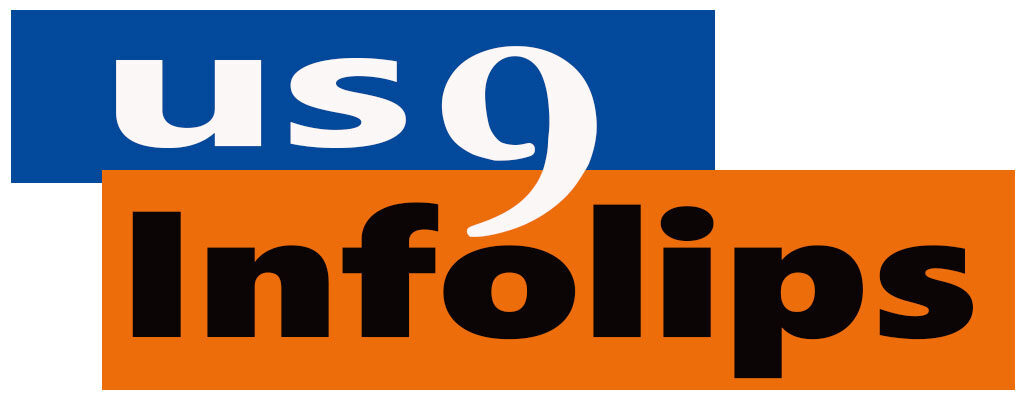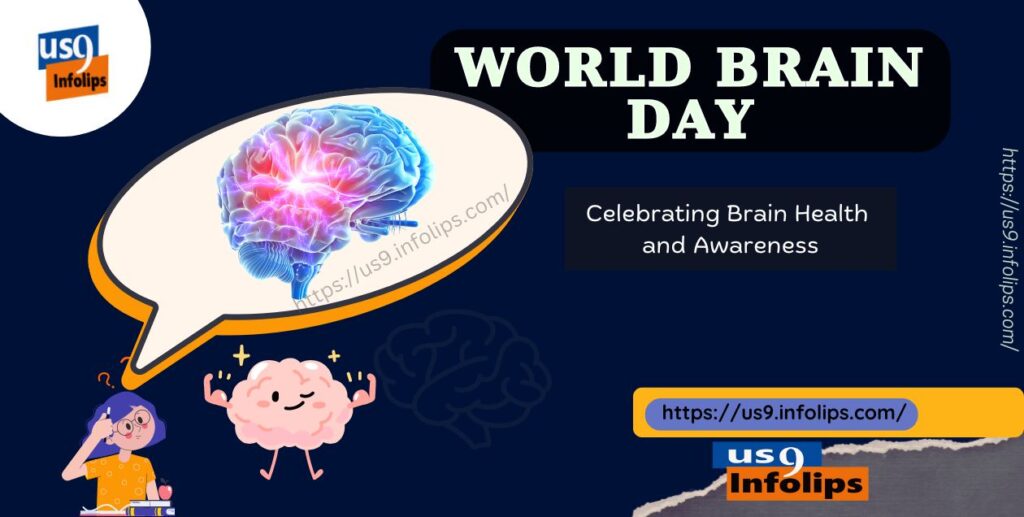World Brain Day: Celebrating Brain Health and Awareness
World Brain Day: Understanding, Celebrating, and Promoting Brain Health
World Brain Day, observed annually on July 22, is a global initiative aimed at raising awareness about brain health and neurological disorders. Organized by the World Federation of Neurology (WFN) and its partners, this day focuses on various aspects of brain health, highlighting the importance of education, research, and support for people affected by neurological conditions.
Exploring Brain Health: Facts and Controversies of World Brain Day, Facts, Mysteries. Let’s explore the significance of World Brain Day through ten key points that cover its history, themes, and ways to get involved.
Table of Contents
1. History and Origin
World Brain Day was first launched by the World Federation of Neurology on July 22, 2014, to commemorate the organization’s founding. The initiative was created to promote the advancement of neurology and improve public awareness about brain health.
Each year, the WFN collaborates with international partners to spotlight a specific neurological issue, making World Brain Day a powerful platform for education and advocacy.
2. Annual Themes
Every year, World Brain Day focuses on a specific theme related to brain health. These themes are carefully chosen to address pressing neurological issues and to foster dialogue among healthcare professionals, patients, and the general public.
For instance, past themes have included “Clean Air for Brain Health” and “Stop Multiple Sclerosis.” By focusing on a particular topic, the WFN aims to drive targeted actions and raise awareness on a global scale.
3. Raising Awareness
One of the main goals of World Brain Day is to increase public awareness about the importance of brain health and the impact of neurological disorders. Many people are unaware of the prevalence and seriousness of conditions like Alzheimer’s disease, epilepsy, Parkinson’s disease, and stroke.
World Brain Day seeks to inform the public about these conditions, encouraging early diagnosis and treatment, which can significantly improve outcomes for patients.
4. Educational Initiatives
World Brain Day is marked by various educational activities and initiatives designed to inform people about brain health. These include workshops, seminars, webinars, and public lectures led by neurologists and healthcare professionals.
These events provide valuable information about the prevention and management of neurological disorders, as well as updates on the latest research and treatments.
5. Global Partnerships
The success of World Brain Day relies heavily on partnerships with international organizations, healthcare institutions, and advocacy groups. By collaborating with entities like the World Health Organization (WHO) and various neurological societies, the WFN can reach a broader audience and amplify its message.
These partnerships are crucial in driving policy changes and securing resources for research and patient care.
6. Promoting Research
Research is a cornerstone of World Brain Day, emphasizing the need for continuous scientific investigation into brain health and neurological disorders. By promoting research, World Brain Day aims to encourage advancements in understanding, diagnosing, and treating brain-related conditions.
Supporting research initiatives also helps in discovering new therapies and improving the quality of life for patients worldwide.
7. Support for Patients and Families
World Brain Day highlights the challenges faced by patients with neurological disorders and their families. It provides a platform to discuss the emotional, physical, and financial burdens of these conditions. Support groups and community resources play a vital role in offering assistance, sharing experiences, and providing a sense of belonging to those affected by neurological disorders.
8. Advocacy and Policy Change
Advocacy is a key component of World Brain Day, focusing on influencing public policy to improve brain health services and resources. The day serves as a call to action for governments and policymakers to invest in healthcare infrastructure, prioritize neurological research, and ensure access to affordable treatments.
Effective advocacy can lead to meaningful policy changes that benefit patients and communities.
9. Community Engagement
Community involvement is essential in spreading the message of World Brain Day. Events like brain health fairs, charity runs, and awareness campaigns engage the public and encourage participation. These activities foster a sense of community and collective responsibility for promoting brain health and supporting those affected by neurological disorders.
How to Get Involved :
There are numerous ways to participate in World Brain Day activities. Individuals can attend events, share information on social media, or volunteer with local neurological organizations. By taking part, people can help raise awareness, reduce stigma, and contribute to a global movement aimed at improving brain health.
9 Facts About World Brain Day
- Inception and Purpose
World Brain Day was established by the World Federation of Neurology in 2014 to promote brain health awareness and education globally. - Annual Themes
Each year, World Brain Day highlights a specific theme, such as “Clean Air for Brain Health” and “Stop Multiple Sclerosis,” to focus attention on critical neurological issues. - Global Collaboration
The WFN collaborates with international organizations, including the World Health Organization (WHO), to amplify the impact of World Brain Day. - Educational Activities
World Brain Day features workshops, seminars, and public lectures aimed at educating people about brain health and neurological disorders. - Raising Awareness
The day serves as a platform to raise awareness about the prevalence and impact of neurological disorders, which affect millions worldwide. - Supporting Research
World Brain Day encourages research into brain health, promoting advancements in understanding, diagnosing, and treating neurological conditions. - Focus on Prevention
The day emphasizes the importance of lifestyle choices and preventive measures in maintaining brain health and reducing the risk of neurological disorders. - Patient Support
World Brain Day highlights the challenges faced by patients with neurological disorders and their families, promoting support networks and resources. - Policy Advocacy
The initiative advocates for policy changes to improve access to healthcare, support research funding, and prioritize brain health globally.
9 Interesting Unknown Facts About the Brain Day
1. Brain’s Energy Consumption
The human brain accounts for about 2% of body weight but consumes approximately 20% of the body’s energy.
2. Neuroplasticity
The brain has the remarkable ability to reorganize itself by forming new neural connections throughout life, known as neuroplasticity.
3. Brain Cells Regeneration
Contrary to old beliefs, the adult brain can generate new neurons, a process called neurogenesis, particularly in the hippocampus.
4. Emotional Processing
The brain processes emotions through the limbic system, with the amygdala playing a key role in emotional reactions and memories.
5. Dreams and Creativity
Dreams are thought to enhance creativity by integrating different memories and ideas, providing new perspectives and solutions.
6. Memory Storage
Memories are stored in multiple areas of the brain, with the hippocampus, amygdala, and prefrontal cortex playing crucial roles.
7. Sleep and Brain Health
Sleep is vital for brain health, facilitating memory consolidation, toxin removal, and overall cognitive function.
8. Brain’s Communication Network
The brain contains over 100 billion neurons, each connecting with thousands of others, forming an intricate communication network.
9. Gut-Brain Connection
The gut and brain are connected through the gut-brain axis, influencing mood, behavior, and cognitive functions.
9 Controversies About World Brain Day
1. Focus on Specific Disorders
Some criticize World Brain Day for focusing too heavily on certain disorders, potentially overshadowing others that also need attention.
2. Funding Allocation
There are debates over the allocation of funding for neurological research, with some arguing that more resources should be directed to less-studied conditions.
3. Access to Healthcare
Disparities in access to neurological healthcare services, particularly in low-income regions, remain a significant concern.
4. Pharmaceutical Influence
Critics argue that pharmaceutical companies may influence the agenda of World Brain Day to prioritize conditions with lucrative treatment markets.
5. Overemphasis on Lifestyle
Some claim that World Brain Day places too much emphasis on lifestyle changes, potentially minimizing the need for medical interventions.
6. Commercialization of Brain Health
The commercialization of brain health products, such as supplements and brain training apps, raises concerns about misleading claims and efficacy.
7. Neurological Stigma
Despite awareness efforts, stigma surrounding neurological disorders persists, affecting patients’ willingness to seek help.
8. Ethical Concerns in Research
Ethical concerns arise regarding research methodologies, particularly in studies involving vulnerable populations.
9. Mental Health Integration
There are debates about the integration of mental health within the broader context of brain health, with some advocating for more inclusive approaches.
Conclusion
World Brain Day is a vital initiative that brings attention to the importance of brain health and the challenges faced by individuals with neurological disorders. Through education, advocacy, and community involvement, this day plays a significant role in promoting research, supporting patients, and fostering a deeper understanding of brain health worldwide.
By engaging with World Brain Day, we can all contribute to a future where brain health is prioritized and neurological disorders are better understood and managed.
FAQs
Q.1: What is World Brain Day?
A: World Brain Day is an initiative by the World Federation of Neurology to raise awareness about brain health and neurological disorders.
Q.2: When is World Brain Day celebrated?
A: World Brain Day is celebrated annually on July 22.
Q.3: What are the themes of World Brain Day?
A: Each year, World Brain Day focuses on a specific theme related to brain health, such as multiple sclerosis or clean air for brain health.
Q.4: How can I participate in World Brain Day?
A: You can participate by attending events, sharing information on social media, and promoting brain health awareness in your community.
Q.5: What is neuroplasticity?
A: Neuroplasticity is the brain’s ability to reorganize itself by forming new neural connections throughout life.
Q.6: How does sleep affect brain health?
A: Sleep is essential for memory consolidation, toxin removal, and overall cognitive function, making it vital for brain health.
Q.7: What is the gut-brain connection?
A: The gut-brain connection refers to the communication between the gut and brain, influencing mood, behavior, and cognitive functions.
Q.8: What are some controversies about World Brain Day?
A: Controversies include funding allocation, pharmaceutical influence, and access to healthcare disparities.
Q.9: Why is brain health important?
A: Brain health is crucial for cognitive function, emotional well-being, and overall quality of life, impacting how we think, feel, and interact with the world.
Follow us for more captivating articles and stay connected to explore the world. Let’s embrace the power of communication and understanding.
Disclaimer: The views in this article are given with the help of information available on the net. Readers are encouraged to conduct their own research before making any decisions. The publisher disclaim any liability for any loss or damage caused directly or indirectly.

Related topics:
1. Perfect World Travel Guide
2. 9 Most Popular EV Cars in the USA
3. 9 Best Things About Apple TV 4K – Third Generation
4. Think before You Renew Amazon Prime
5. Jimmy Carter: A Great Legacy
6. Memorial Day: Honoring the Sacrifice, Celebrating Freedom
School Site :
For English grammar and lot more : Smart School Infolips
Marathi Poems: Marathi Rang












